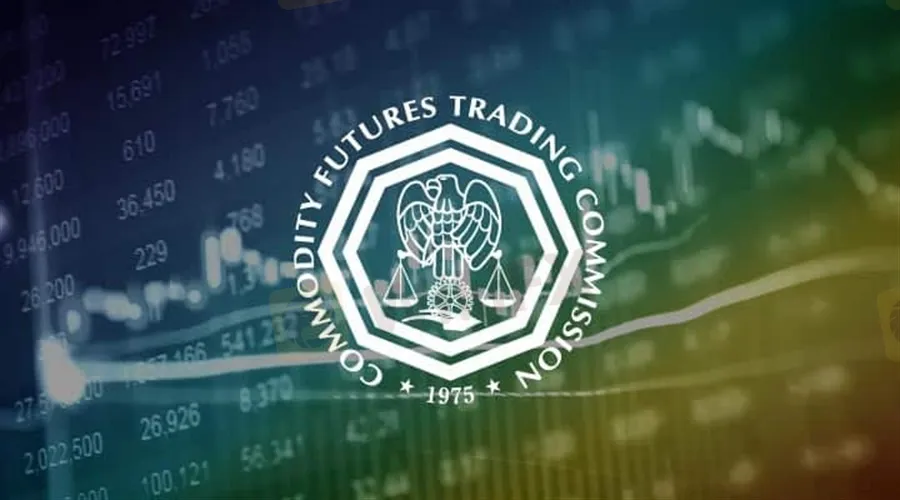简体中文
繁體中文
English
Pусский
日本語
ภาษาไทย
Tiếng Việt
Bahasa Indonesia
Español
हिन्दी
Filippiiniläinen
Français
Deutsch
Português
Türkçe
한국어
العربية
CFTC Sanctions Commodity Pool Operator with $13 Million
Abstract:David Seibert was ordered to pay $10,794,508 in restitution to victims of his scheme. He allegedly accepted over $10 million from 11 participants in his scheme.

The US Commodity Futures Trading Commission ( CFTC ) announced on Thursday that it imposed sanctions against an unregistered commodity pool operator, who was ordered to pay over $13 million.
Take Advantage of the Biggest Financial Event in London. This year we have expanded to new verticals in Online Trading, Fintech, Digital Assets, Blockchain, and Payments.
According to the press release, David Seibert from Lakeway, Texas, is accused of running a commodity fraud and was found liable for solicitation fraud and the misappropriation of client funds. A permanent registration ban and trading ban were also imposed by the court, which prohibited him from violating the Commodity Exchange Act in the future.
Over $10 million was fraudulently solicited and accepted by Seibert from 11 participants from March 2016 to April 2019. During the time, Seibert claimed to use participant funds for short-term, high-interest, secured 'bridge loans' to third-party borrowers for the purpose of making property repairs while they sought permanent financing.
According to Seibert, he would find the lending opportunities, confirm that the borrower was qualified, and then close and service the loan. However, no loans were originated by Seibert. As a result, Seibert used most of the funds to trade commodity interests in his personal trading account, where he lost over $8.3 million. Funds from other participants were used for personal expenditures by him.
Seibert has been ordered to pay $10,794,508 in restitution to victims of his scheme and $2,278,853 in civil penalties.
Recent Investigations
Recently, the US regulator announced that it had filed a civil enforcement action against a South African man, Cornelius Johannes Steynberg, and an unregistered commodity pool operator, Mirror Trading International Proprietary Limited (MTI).
Both parties were charged with fraud and registration violations before the US District Court of the Western District of Texas. This action comes a few days after the CFTC slammed a $1.37m fine on Starberry Limited for acting as a futures commission merchant without a permit.

Disclaimer:
The views in this article only represent the author's personal views, and do not constitute investment advice on this platform. This platform does not guarantee the accuracy, completeness and timeliness of the information in the article, and will not be liable for any loss caused by the use of or reliance on the information in the article.
Read more

Australian Dollar Surges as Trade Surplus Hits 11-Month High: A Golden Opportunity for Forex Traders
Australia's trade surplus has surged to an 11-month high, reaching $5.62 billion in January 2025. The unexpected boost in trade surplus was primarily driven by a 1.3% month-over-month increase in exports, with non-monetary gold playing a starring role.

ECB Set to Cut Rates, But Future Path Uncertain Amid Global Tensions
- ECB expected to cut interest rates on March 6 - Future rate decisions unclear due to ongoing inflation and global trade issues - Markets expect more cuts, but some ECB officials urge caution

Forex Trading Mastery: The Ultimate Winning Formula
The foreign exchange market is inherently volatile, with its sharp fluctuations driven not only by changes in the global economic landscape but also by large-scale speculative capital and the influence of major market players, further intensifying its instability.

Gold Surge News: Central Banks Expand Gold Reserves—Will Prices Rise?
Central banks have purchased over 1,000 tons of gold annually for three consecutive years, and 2024 is no exception. However, the key question remains: as demand for gold continues to rise, will its price keep increasing?
WikiFX Broker
Latest News
$13M Pig Butchering Scam: Three Arrested for Money Laundering
FINMA Opens Bankruptcy Proceedings
FCA Issues Warning Against 14 Unregistered Financial Firms
Crypto Scam Exposed: 3 Arrested for Defrauding Investors
Nifty 50 Index Futures Now Available at Interactive Brokers
Grand Unveiling: The Core Reasons Behind the Yen’s Rise
Ethereum’s Shock Drop: What’s The Real Reason?
Famous Olympic Breakdancer’s Brother Faces Crypto Fraud Charges
Why Hasn’t Binance Listed Pi Network (PI) Yet? Key Reasons Explained
Gold Surge News: Central Banks Expand Gold Reserves—Will Prices Rise?
Currency Calculator






